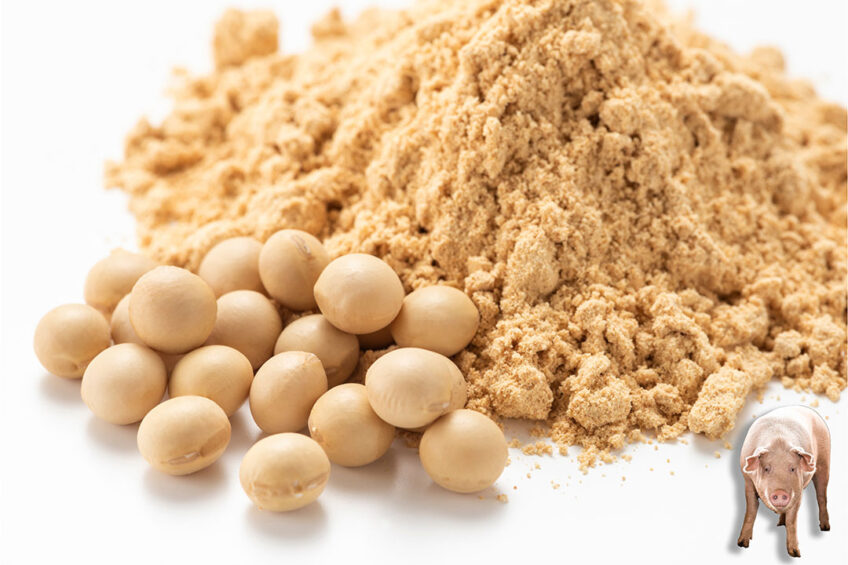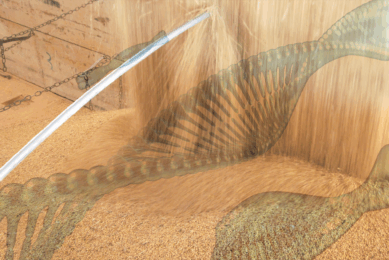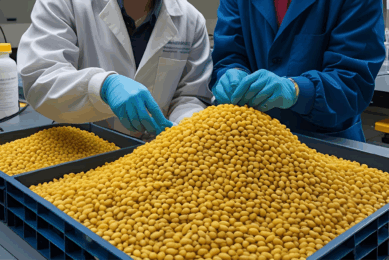Harnessing molecular farming to grow pork protein in pink soybeans

Alternative protein company Moolec Science has created transgenic soya beans by ensuring that a quarter of the protein is pig rather than plant protein.
The UK-based firm, which is also creating pea plants that contain beef protein, says its products will be able to provide similar nutritional value, taste and texture as meat but at a lower cost than cultured meat.
The company has created the genetically modified soya plants, which have a pinky-red tinge inside them. According to the New Scientist, this means that it is likely one of the added genes is for a protein with an iron-containing haem group such as myoglobin.
Piggy Sooy
Amit Dhingra, Moolec chief scientific officer, told the publication that it can’t go into details of which pig genes have been added to soya to produce the “Piggy Sooy” product, due to intellectual reasons. The breakthrough has led Moolec to file a new patent utilising a novel approach aiming to provide the company with a frictionless regulatory path moving forward.
The animal protein reached a high expression level up to 26.6% of total soluble protein in soy sees, 4 times higher than initially projected by the company.
Piggy Sooy represents tangible and visual proof that that Moolec’s technology has the capacity to achieve significant yields in plants to produce meat proteins.
Moolec CEO and co-founder Gaston Paladini
Making food chain sustainable
“Our plant biology team is writing the history of science in food, I couldn’t be prouder of them,” Paladini.
Dhingra said Piggy Sooy could help make the food supply chain more sustainable: “This achievement opens up a precedent for the entire scientific community that is looking to achieve high levels of protein expression in sees via molecular farming.
“We have developed a unique, successful and patentable platform for the expression of highly valuable proteins in the seeds of economically important crops such as soybeans.
“This platform has the potential to be used across a wide variety of proteins of interest for a broad range of industries, such as the pharms, cosmetic, diagnostic reagents and other food industries.”
Market potential for plant based proteins
It is widely believed that bringing proteins closer to what is sourced from animals may lead to a more convincing selling points for consumers – an issue raised by environmental writer Mark Lynas, who believes its environmental credentials are worth highlighting.
Seren Kell, of the Good Food Institute Europe, said there is strong evidence that consumers would like to see more sustainable alternatives to animal agriculture. Sales of plant-based options have increased by 21% in Europe since 2020, she said.
The crossover of animal proteins into the plant-based sphere is a trend that is gathering pace, along with precision fermentation, in a bid to shrink the footprint of food production. Climax Foods recently introduced a plant-based casein replacement – mimicking the melt and stretch of dairy casein.











